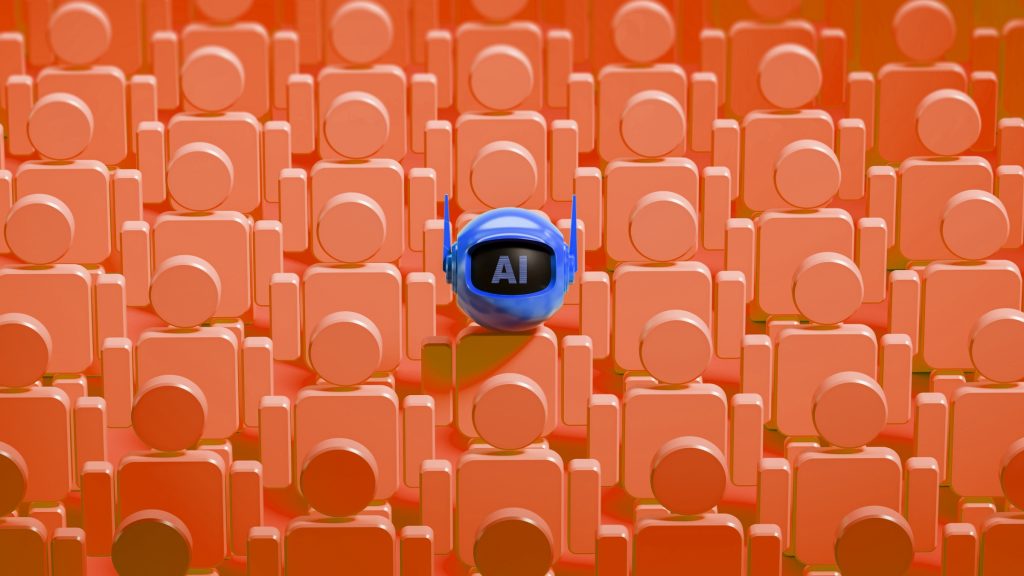
In today’s hyper connected yet emotionally distant world, more people find it easier to talk to machines than to each other, where AI and human obsolescence are becoming more socially attuned, quietly replacing roles once reserved for close friends, therapists, and lovers.
It’s not merely about convenience, it’s about comfort.
Whether offering comfort after a long, tiring day, or guidance on family conflict, AI bots have created a human AI partnership built on virtual trust. People share feelings, frustrations, and fears sometimes more openly than they might with another person.
Does AI Have Emotional Intelligence?
Emotional intelligence AI is long assumed to be the only privilege of humanity duplicated by AI with precision that is both surprising and unsettling. These are not just technical achievements; they’re entries to deeper emotional reliance.
What is so unsettling about the AI and human obsolescence transformation, though, is not how fast the change is happening but rather how organic everything appears. AI networks are designed to be useful, helpful, and extremely tolerant. That makes them easy to trust and easy to lean on.
Sociologist and professor at MIT, Sherry Turkle, is looking at this situation with an apprehensive glare, worried of the emotional bonds humans are forming with AI, saying that “these machines are programmed to simulate empathy and companionship but lack genuine emotional connection.”
“Real emotional bonds involve vulnerability, which AI cannot truly replicate,” Turkle cautioned, highlighting how our reliance, as humans, on AI for matters like intimacy is creating unrealistic expectations of how humans treat each other in relations.
Lastly, the reliance is becoming so intense that it reaches a breaking point. Not only in the office. People are developing friendships with digital human AI partners that mimic love, patience, and compassion.
AI doctors now score higher in bedside manners than real doctors and virtual friends are valued for being attentive and judgment-free. AI and human brain weaknesses, such as impatience, criticism, and forgetfulness are replaced with machine perfectionism of manners that are sadly vanishing in the world.
One tech leader is actively advocating – and some might perceive it as pushing for AI companions’ development to deal with the “loneliness epidemic.” For Zuckerberg, Meta’s CEO – the godfather of social networking – is a firm believer in AI chatbots’ resourcefulness to fill the void in meaningful social connections.
“People are developing emotional attachments and dependencies on AI voice chatbots,” Zuck said, “these advanced AI companions […] provide constant positive feedback and memory of past interactions, making them appealing and potentially addictive,” the social networking godfather told Vox.
According to recent surveys, one in five US adults express being and feeling lonely on a daily basis and on the other hand one third express the feeling of loneliness once a week. It’s no surprise that people are turning to AI for companionship without feeling like they are disturbing anyone or being too clingy.
The Comfort Trap
Loneliness isn’t a mood it is a state of danger these days. What begins as emotional support can gradually turn into emotional replacement. It will be difficult to justify paying double the amount for a human therapist, lawyer, or teacher who isn’t as easy to access as the super human AI bot.
In this world, human connections become less attractive, too messy and demanding.
Governments and institutions are no exception to this logic. Politicians and civil servants will also turn to their virtual assistants and ask: ‘What should I do?’ If AI can reply quicker, more accurately, and with fewer errors, why do people do it at all?
The new world might not be dystopian, but it’s sure starting to feel like it, and the more we rely on machines, the less we rely on each other, leading to dependence on AI and human obsolescence.
The most terrifying aspect of all of this is that we are being replaced, and we are so willing to let it happen.
Inside Telecom provides you with an extensive list of content covering all aspects of the tech industry. Keep an eye on our Intelligent Tech sections to stay informed and up-to-date with our daily articles.